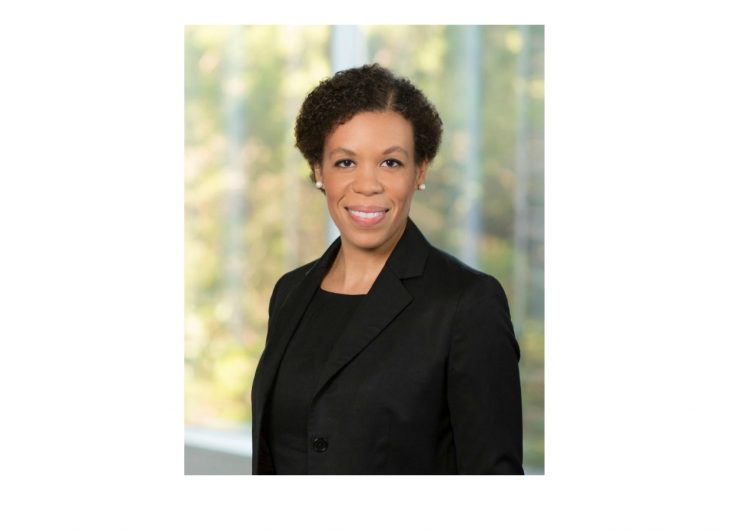
Sarah Fortt, Counsel at Vinson & Elkins LLP
By Sarah E. Fortt
The topic of leadership gets a lot of limelight. A quick Google search always produces recent articles in well-known publications and countless YouTube videos – Navy SEAL Techniques To Help You Lead And Motivate Your Team; Accountability And Success: A Leader Can’t Have One Without The Other; Ten Tactics For Establishing Yourself As A Leader. It seems that no sooner does any newsworthy event takes place than there are articles critiquing how leaders did or did not govern effectively, and providing pithy “lessons learned” for others who lead or seek to do so. And yet, somehow there continue to be lessons to be learned, and many organizations are arguably more in need of effective leadership today than at any point in their past.
Today, many organizations are facing multiple crises simultaneously, and even those that are not as exposed as others to the current economic, social and health crises are awash in the uncertainty those crises create. On a daily basis leaders are facing critical questions, and their answers to those questions will have a long-term impact on their organizations’ corporate strategy, reputation and culture. While some companies and their leaders are beginning to acclimate to our new normal, few have the time or energy to gaze into their crystal balls to determine what the future holds. And while having effective leaders does not provide all the answers to the questions organizations face today and will face tomorrow, an effective leader can be the catalyst necessary for moving a company out of a space in which it only reacts to crises and uncertainty into a space in which it can thoughtfully envision a strategic future.
I have had the privilege of observing and counseling a significant number of leaders over the course of my career, both during times of calm and times of crisis. As a corporate governance lawyer and frequent speaker and facilitator on corporate culture issues and crises, I am often entrusted to help leaders navigate the challenges and opportunities their organizations face. And while there is no such thing as a perfect leader, or a leader whose approach will be effective across every organization and in every event, I have observed a few unique qualities that are required for leading effectively during periods of crisis. These qualities are not among those most frequently lauded in the public discourse on leadership, they are the quiet heroes of excellent leaders who are capable of steering their organizations through both still and wild waters.
Courage is necessary, but true courage requires both sacrifice and humility. Much is made of confidence in leadership, and yet, particularly in times of crisis, it is courage rather than confidence that equips a leader to show the way. Anyone can be confident in good times, but it is often how we respond to our fears that defines us, both as leaders and as individuals. And while the professional life receives most of our focus in discussions regarding leadership, courage, much like integrity, is no respecter of the lines we draw between our professional and personal selves. It demands all of us or none of us.
Whether I am working with groups of directors and c-suite executives, middle managers or a broader group of employees, it continues to surprise me how people across every level of an organization tend to respond the same to crisis, specifically, they all tend to look at the level above them for guidance, responsibility and courage. The best leaders acknowledge that, regardless of who they may report to and where they sit in the organization, the buck stops with them. Most organizations have, and need, leaders at multiple levels. And yet, particularly in times of crisis, our tendency is to look to those we believe have more control than we do to tell us we will be ok. The best leaders have the courage to be responsible to those following them, even though they themselves may be experiencing uncertainty and fear.
And yet, real courage is not simply about putting on a brave face. Truly courageous leaders are willing to be challenged by those they disagree with, both professionally and personally, and are willing to trust the expertise and experience of others, including those who come from different perspectives and have different positions and priorities. This level of courage requires sacrifice – specifically sacrifice of the image of one’s self as autonomous and omniscient. Although these leaders are courageous, they do not use the organization to prove their bravery. Instead, they are brave enough to acknowledge their dependency on others. And this in turn requires a level of humility, an acknowledgement of one’s own fears and vulnerability. These leaders, by tempering their courage with humility, equip those who follow them to also exhibit courage through crisis.
Diversity prepares an organization for disruption. Diversity is having a moment. In response to recent events, companies are evaluating their public statements and internal programs and policies to better address their commitments to racial equality and justice. While those events and companies’ responses to them are not irrelevant to the discussion of leading through crisis, a broader principle is also applicable. Specifically, those who lead effectively through crises recognize that adversity is our greatest teacher, and seek out as their teachers those who have successfully navigated adversity in the past. An organization’s diverse individuals, including not only those of different racial or ethnic backgrounds, but also those with different perspectives, have frequently honed an innate ability to think creatively about navigating adversity. This is because diversity of thought itself is a form of healthy disruption within an organization – it challenges the status quo and provides opportunities for more creative problem-solving to take place. For that reason, the leaders and organizations that have learned to listen to their diverse individuals are often better equipped to address disruption and crisis. While inexperienced leaders may close ranks during a crisis and only seek the advice of those who share the same perspectives and, unfortunately, the same blind spots, experienced and effective leaders look more broadly for input. The best leaders have established relationships with individuals with different perspectives far in advance of any crisis and then can easily traverse complex conversations that might otherwise be uncomfortable or awkward.
Empathy counts more than perfection. It has been observed before that leaders often get promoted because of technical competence, not because of emotional intelligence. The ability to prioritize other people’s safety, dignity and self-worth over one’s own ambition or comfort is as critical in a crisis situation as it is unusual. And yet in crises even more than in steady times, empathy defines a leader that others will follow through the storm rather than abandon at the first opportunity. In the current global health crisis that has highlighted the socioeconomic differences in many organizations, this characteristic – empathy – will ultimately distinguish the leaders who are able to effectively reunite internal communities following the pandemic from those who do not and cannot. There is often the assumption that “good” people are good at empathy, but empathy requires practice. And the leaders who are most effective at navigating crises have practiced empathy in advance, and are equipped both to be challenged by events that highlight inequality and to address those events thoughtfully and without awkwardness or embarrassment.
Effective leadership and great leaders are both more complex and more simple than we often acknowledge, and always a good deal more human than we are prepared to admit. Particularly in times of crisis, effective leaders are willing to recognize that the bright line we attempt to draw between our professional and personal selves is an apparition, and embrace the humanity in themselves and in those they seek to lead.
MORE: Tuesday, September 15 — Join Vinson & Elkins’ innovative Environmental, Social and Governance (ESG) Taskforce members for an exceptional series of conversations with industry insiders, top capital providers, and thought trailblazers on key developments and expectations regarding the alignment of corporate risks, oversight and strategy, and what the pandemic is teaching us about the future of ESG. Details are available here.
Sarah Fortt is Counsel at Vinson & Elkins in Austin, TX. Her practice is focused on board-level matters and she regularly engages with boards, public and private, on matters regarding corporate governance, disclosure and regulation, and provides board education, representation and engagement on topics including corporate culture and disclosure, reporting requirements, “ESG” (environmental, social and governance) matters, investor engagement, board composition and board and c-suite succession planning and transition management.







